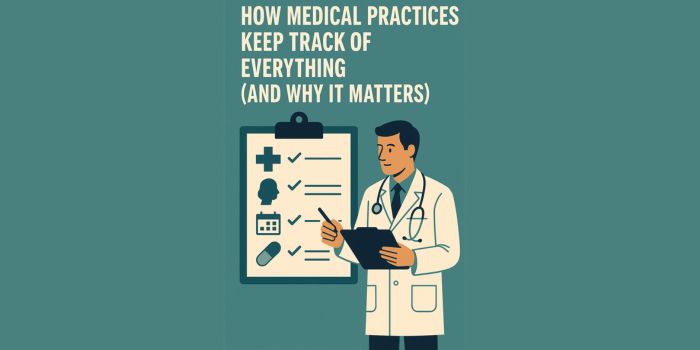We’ve all experienced how good we feel when we’re outside, just existing out there, in nature.
It’s a feeling we can hardly compare to any other, as there is nothing else that can make us feel so connected to the natural world around us, through each of our senses.
The sound of leaves, the fresh air, the rays of sunshine and the wind on our skin – they refresh and comfort us, relieving all our worries, and helping us think clearly.
However, we succumb too easily to our daily schedules, hardly allowing ourselves to evoke this feeling, let alone make a decision to do more of what makes us feel genuinely good – spend more time outside.
That’s why we should remind ourselves of all the mental and physical benefits nature brings to our lives, so we can consciously make it our priority.
Relieves Stress, Depression, and Anxiety
Getting in touch with nature is the best remedy for stress, anxiety, depression and other mental health concerns. These mental health problems are often related to the elevated levels of the stress hormone cortisol wreaking havoc in our bodies.
Relieving these symptoms is closely connected to keeping the level of cortisol at a lower level.
The simple practice of spending time in a green environment, even without taking part in any kind of physical activity, benefits both your body and your soul. Studies of the Japanese practice of “forest bathing “ indicate that by spending 20 minutes in the woods you can decrease the levels of the stress hormone. Another research shows that cortisol can also be reduced by a 30-minute gardening session.
And while the shorter periods of time spent in nature affect your mental health positively, spending more time in nature can help you change your habits and your lifestyle for the better. You can read about all the benefits that spending four weeks outdoors walking a long-distance route can do both for your body and your mind.
So, no matter whether it’s a pilgrimage of your own, or going on a journey to cure your loneliness, spending time outdoors can bring back a sense of purpose that is essential for your emotional and overall well being.
Boost Your Mood
Besides decreasing the levels of cortisol and relieving you from the stress and anxiety, time spent outdoors is a great mood elevator.
Sunlight and fresh air can fill you with a sense of well being, as well as improve your self-esteem and your mood. This mood boost may come as a consequence of the fact that when we are outside, we tend to ruminate less about our daily problems and challenges, so our minds can normalize and declutter.
Reduce Inflammation
Inflammation is a natural response of our body to an infection or an injury. It’s the way our immune system heals and repairs damaged tissue, and fights viruses and bacteria.
But if it lasts for too long or occurs in the place where it’s not needed, inflammation can lead to autoimmune disorders, depression, inflammatory bowel disease and even cancer.
However, studies show that spending time outdoors can reduce both the symptoms and the causes of inflammation. A study on “forest bathing” has shown that spending time in the forest reduced oxidative stress and pro-inflammatory levels in subjects that spent two nights in a forest instead of a city area.
Lower Risk of High Blood Pressure, Heart Attack, and Stroke
Back in 2018, doctors in Shetland started giving “nature prescriptions”, such as bird watching, beach walking or open-air mindfulness, to help treat chronic and debilitating illnesses for the first time.
Moderate “green” exercises, such as walking and hiking, can lower the risk of high blood pressure, heart attack, and stroke, and decrease the odds of developing Type 2 diabetes.
Just a short hike can reduce blood pressure by 4-10 points, while a single three-hour hike can ensure a healthier heart and decrease the risk of stroke! Other activities such as open-air swimming or cycling outdoors carry similar benefits.
Furthermore, as outdoor training is more enjoyable to many, they’ll find it much easier to stick to a daily routine.
Better Sleep
Spending time outdoors can reset your internal clocks to healthier settings and bring you closer to the natural circadian rhythm when your sleep pattern actually follows the rhythm of the day. Exposure to natural lighting, when you’re spending time and sleeping outdoors, reduces individual differences in circadian timing.
When we’re spending too much time indoors, we’re most usually exposed to artificial lights, and our sleep cycles begin to suffer. We go to bed later than we’re supposed to, thus skipping the beneficial effects of melatonin or the “Dracula of hormones”, which our bodies only produce in dark environments.
Furthermore, while spending time outdoors benefits people of all age groups, these advantages seem to be the strongest for men and women over 65.
Enough Vitamin D
Another benefit of spending more time outdoors is sun exposure, which can help you get the right amount of vitamin D. This vitamin is extremely important for keeping you healthy, as it plays a significant role in your immune, nervous and muscle system. It also helps your body absorb calcium, which is crucial for your bones.
The prevalence of vitamin D deficiency is high in many parts of the world, leading to many health issues, such as dementia, heart disease, stroke, multiple sclerosis, osteoporosis, etc. The best source of vitamin D is sunlight, as the vitamin is actually made out of cholesterol in your skin when it’s exposed to the sun.
However, as sun exposure is also directly linked to skin cancer, make sure you get your vitamin D safely.
Better Vision
When we’re spending time indoors, our eye health is at risk too. Not only do we spend the major part of our days surrounded by artificial lighting, but we also spend hours attached to the screens of our cell phones, computers, laptops, tablets, and other devices.
Eye problems related to too much exposure to different types of digital screens fall under the heading CVS – computer vision syndrome. This syndrome includes all sorts of problems, such as blurred or double vision, red or dry eyes, irritation around the eyes, migraines and headaches, as well as back and neck pain.
Spending more time in a natural setting will increase your natural light exposure, and you’ll be away from the screens thus decreasing these unpleasant symptoms.
Furthermore, it’s determined that in children, more outdoor time decreases the risk of experiencing myopia (nearsightedness) as adults.
Instead of waiting for nature to be prescribed to you as a cure for a disease, it’s better to be proactive and reap all the benefits of nature therapy as prevention.




